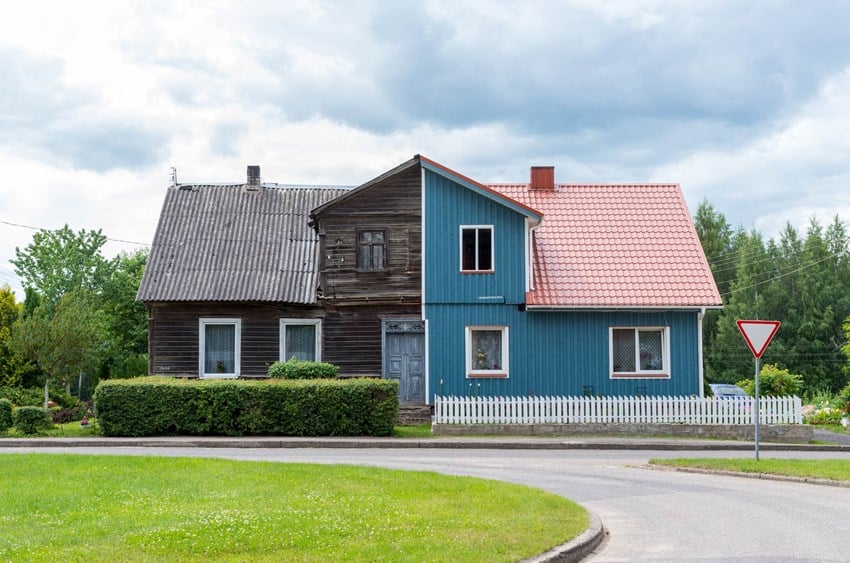At home
Air in all buildings is important, especially in our homes. Most people spend a considerable part of their lives at home, children more than adults and infants almost all of the time. Therefore the quality of the air we breathe in the home is especially important, as we spent more than half of our lives there.

Where do we spend our time at home?
Time is the ultimate limited resource. Every single one of us has exactly the same 'time budget': 24 hours per day, 365 days per year – 8,760 hours every year of our lives.
We spend the most time working and sleeping; and paid work, housework, leisure, eating and sleeping take together 80-90% of the 1,440 minutes that we all have available every day.
The average leisure time for men is higher than for women. A key factor driving these differences in leisure time is the gender gap in unpaid work. As women are responsible for a disproportionate amount of unpaid work, and have less leisure time as a result.
The most enjoyed activities involve rest or leisure activities (eating out, sleeping, going to sports events, playing computer games or attending cultural performances). The activities with the lower enjoyment include doing school homework, looking for a job, or doing housework.
Home is the place for resting and so much more
Our homes offer us the place where we can rest, enjoy time and sleep peacefully. So why do we need to talk about productivity and performance in our homes?
We still need to create a healthy lifestyle and routine whilst being efficient in many ways. We also need to balance work and our personal lives.
What do we do at home?
- Sleeping and resting
- Personal care — hygiene, education and other activities
- Household activities — cooking, cleaning, washing
- Planning daily activities (free and/or work related)
- Staying healthy — excercise and recreation, relaxing & leisure
- Socialising — connecting with family, friends and people, taking care of others

The air we breathe at home
Everybody knows that the air is a basic requirement for life on earth, but have you thought about that every day we breathe several thousand liters of air around us? Breathing is done completely automatically without us having to think about it. But perhaps there is reason to spare a thought for the air constantly passing our respiratory organs, just as we think about what food we put in us.
The daily intake of food and water is about 4 kilograms, put this in relation to the 20-30 kilograms of air we breathe every day. Everything we ingest is absorbed by our body, whether it is food, water, or air. This is why the air we breathe in homes is important.
Outdoor air - can we do something about it?
Can we do something about the air we breathe? Yes, we can in part. Outdoor air we breathe when we for example go with the children to kindergarten or evening walk with the dog, it is difficult to directly affect, except that maybe we can choose where we live. By selecting the geographical location, we can to some extent choose air quality because there is more/less air pollution in a city, in the countryside, in the suburbs and so on.
Considering that in most countries we are very much staying indoors, it is important that the air is of good quality. When we are at work, at school or in our local shopping centers, we can not normally influence the air. At home, however (which we on average spend more than half of the indoor time) we often have greater opportunities to influence our air quality.
How do we know if the air at home is good?
To some extent, we rely on our own minds. For example, we sometimes see large particulate pollutants in the air with the naked eye when the sun shines through the windows. Polluted air often feels trapped because the nose is fantastic to register multiple contaminants at very low levels.
Some of these pollutants are filtered out in the nose and upper respiratory passages, but this is far from all pollution; the rest goes into the lungs. Some particles are so small that they pass the lung tissue and are absorbed directly by the blood.


Ventilation and air change
In a home that is ventilated 'well enough' to satisfy minimum requirements, the air change should be 0.5 per hour. The measurement of 0.5 air changes per hour means that the air is replaced after four hours since the newly added air is mixed with the old air and, therefore, diluted. Both old and new air is then continuously replaced. After four hours the amount of old air is so small that is considered replaced.
Insufficient ventilation in new homes.
Health in our homes is affected by air quality and ventilation, especially when there is insufficient ventilation in homes, especially in new buildings. If your home has mechanical ventilation, you need a good set-up for ventilation, or if you have to ventilate (or vent) by yourself using, for example, windows.
The link between health and air quality in homes.
In one Danish study about health and ventilation, where families have moved into new houses that were well-ventilated but previously lived in a home without ventilation, families themselves talked about a link between health status and indoor environment/air quality/ventilation in homes. The change of houses made to the families included that they experienced fewer problems with asthma and fewer colds and coughs.
Insufficient ventilation in homes could mean moisture problems.
One of the reasons that there are long-standing requirements for ventilation airflow in the house is that polluted and humid air should be removed because mould thrives in moisture. As said in environmental medicine, they have suggested ventilation is frequently insufficient in our homes. Condensation is usually a sign of high humidity inside a house, and it can emerge due to inadequate ventilation. In the study, there was a clear relationship between condensation on windows and allergy and asthma in children.

People spend more than half of their waking time at home.
What can cause pollution in our homes?
A home should be a place for relaxation, playing, meeting friends, family life, seclusion and for everything people want it to be. For many people the home is also a place of work.
Building materials and chemicals
Previously often problems with asbestos and radon
Cleaning chemicals, air cleaners and fresheners
Pesticides, paints
Pollutants
Furniture and electronics
Textile, furnishing fabrics and carpets
Printers, PCs and electronic equipment
Plastics, toys, PVCs
People
Exhaling carbon dioxide
Secondhand smoke
Emitting moisture via exhalation and through our bodies
Our own odor and also parfumes
Animals & live sources
All pets contaminate air
Furred animals can cause allergies
Animal´s saliva might cause problems
Mould, mildew, cockroaches, and dust mites
How can you measure air quality in your home?
There are different types of devices for measuring indoor air quality. These devices are easy to acquire and the results are easy to evaluate.
- Temperature (typically measured in Celsius/Fahreheit): measure temperature and humidity to achieve the comfortable conditions in a house.
- Acceptable levels are 20-25°C (dependent on summer/winter season)
- Relative humidity (RH in %): evaluate humidity and temperature in order to prevent the growth of unwanted moulds and bacteria.
- Acceptable 40-60% (depending on the sources of humidity)
- Carbon dioxide (CO2 in ppm): measure the concentration of this gas in parts per million.
- Range between 400 -1,000 ppm (based on the outdoor level and sources)
- VOC concentration sensors (VOCs): calculate the amount of volatile organic compounds present in the air, coming from various sources, such as cleaning, hygiene or construction products.

Creating a good home environment
- Ventilate right. Either using natural ventilation (open the windows) or by installing a mechanical ventilation system (with air filtration and heat exchange).
- Maintain a suitable, comfortable temperature and good air quality. Stop unwanted draughts. Dont smoke at home.
- Keep optimised humidity levels and use an extract hood when cooking.
- Use indoor plants for air purification and keep the home clean and fairly dust free.
- Avoid products such as air fresheners and scented candles.
Our most basic common link is that we all inhabit this planet. We all breathe the same air. We all cherish our children's future. And we are all mortal.J. F. Kennedy